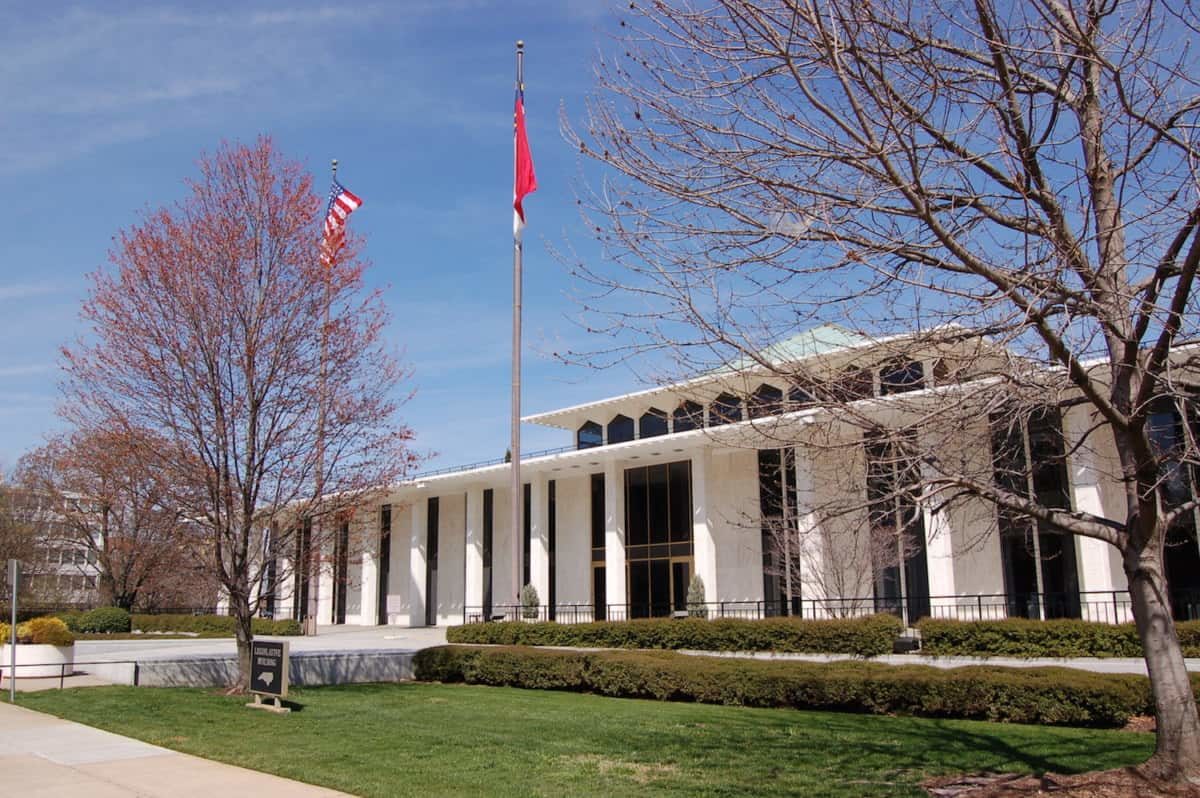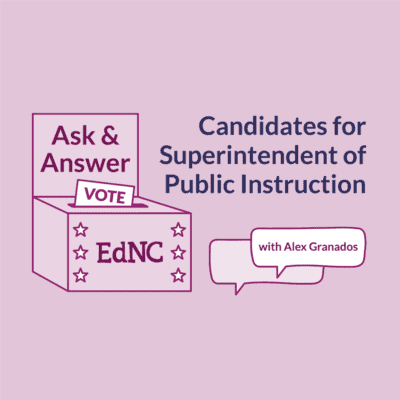

A number of education-related bills made progress through the General Assembly last week. Here are some highlights:
Teacher bonuses
A bill that would give $350 bonuses and planned salary step increases (increased pay due to an increase in experience) to teachers passed the General Assembly after a final vote in the House last week. It goes now to Governor Roy Cooper.
The bill did not pass without incident, however. A legislative maneuver by Republican leadership prevented two Democratic amendments from being considered.
One amendment would have extended the bonuses to non-certified school personnel, while the other would have increased the bonuses to teachers by $900 and granted $1,000 bonuses to non-certified personnel.
In a press release, the Democrats responsible for the amendments spoke about the need for the provisions contained within them.
“You would all agree that our non-certified staff, our cafeteria workers, our bus drivers, our custodians, our teacher assistants, desperately need a $1000 bonus that they would’ve gotten with my amendment,” said Rep. Rachel Hunt, D-Mecklenburg. “I also know you would agree that our teachers need more than $300. I would’ve added $900 to their bonuses to equal $1250.”
“We have people on the front lines, working without ceasing, even risking their lives,” said Rep. Kandie Smith, D-Pitt. “We need to take responsibility to take care of the bus drivers and cafeteria workers who are taking care of our children.”
House Speaker Tim Moore, R-Cleveland, praised the passage of the bill in a press release.
“Thanks to smart budgeting, North Carolina can weather the historic revenue shortfalls caused by the economic shutdown and still reward educators with salary step increases and bonuses instead of the pay cuts and furloughs of previous crises,” Moore said.
The bill also “encourages” additional bonuses for educators, but it leaves that up to Gov. Roy Cooper. It asks that the governor tap into his emergency education relief fund — federal funds given to the governor to combat COVID-19 — and use it to provide a $600 bonus to teachers, instructional support personnel, and non-certified personnel.
The Cooper administration has said, however, that federal guidance precludes the use of those funds for teacher bonuses, a position Republican leaders in the General Assembly take issue with.
Building bond
A House gave initial approval to a bill that would let state voters decide whether or not to issue a $3.1 billion bond. The $3.1 billion would include funds for public school, community college, and University of North Carolina system capital outlay projects and repairs and renovations. The bill is the rare piece of legislation that has House Speaker Tim Moore, R-Cleveland, as a primary sponsor.
The bill would have originally provided public schools with $800 million and community colleges with $200 million. An amendment passed on the House floor would take $350 million from bond proceeds in the bill that were supposed to go to transportation and give $100 million extra to community colleges and $250 million extra to public schools.
That brings the total amount of money public schools would get to more than $1 billion and the amount for community colleges to $300 million, if the bond is passed by voters.
The House supported a similar measure during the 2019 long session but ran into difficulty with the Senate. Senate leaders preferred a construction plan that favored a pay-as-you go approach without taking on debt through a bond. That plan ultimately made it into the long-session budget, but due to Governor Roy Cooper’s veto of the budget, no construction plan passed.
The bill needs to be voted on one final time by the House next week before moving onto the Senate. The big question is: are Senators any more amenable to a bond now than they were before?
Prisons and community colleges
A bill passed the Senate that would allow inmates in state prison to work towards Associate of Arts, Science, or General Education degrees through community college courses offered there. The bill must go back to the House for concurrence.


